The Archive Hour
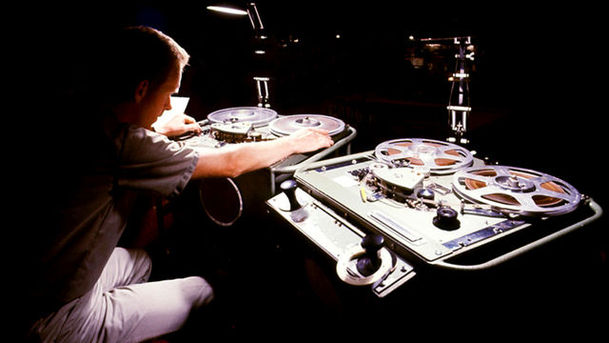
A look back at programmes and recordings from the BBC archives

The Archive Hour - 06/01/2007
In the Dark Tower: Louis MacNeice at the BBC: Louis MacNeice, born in Belfast in 1907, wrote some beautiful poetry. He was also one of the BBC's most innovative radio producers.
Details
The Archive Hour - 11/06/2005
The Truth about Walter Legge: James Naughtie looks at the career of Walter Legge, arguably the most influential classical recording producer of all time.
Details
The Archive Hour - 20/01/2007
Back to Square One, 80 Years of Football on the Radio: Barry Davies delves into the changing relationship between broadcasting and football since the first broadcast in 1927.
Details
The Archive Hour - 50 Years in Europe: Where Away Goals Count Double
50 Years in Europe: Where Away Goals Count Double. Jim White looks back at the 50-year history of football's European competitions and British clubs' participation in them.
Details
The Archive Hour - 50 Years of Ban the Bomb
50 Years of Ban the Bomb: Marking half a century of the Campaign for Nuclear Disarmament, Matthew Parris assesses the organisation's impact.
Details
The Archive Hour - A Philosophy to Live By
A Philosophy to Live By: In 1951, Edward R Murrow asked Americans to voice essays about their most fundamental beliefs. Highlights of that original series are featured.
Details
The Archive Hour - A Quarrel in a Faraway Country
A Quarrel in a Faraway Country: David Vaughan explores the archives of the national radio building in Prague to tell the story of the events of 1938 from a Czech point of view.
Details
The Archive Hour - A Rage in Dalston
A Rage in Dalston: Alan Dein uncovers a little known story of postwar conflict between the remnants of Mosley's British Union of Fascists and the 43 Group of Jewish ex-servicemen.
Details
The Archive Hour - A Small Country Life
A Small Country Life: Sheila McClennon rediscovers Jeanine McMullen's much loved A Small Country Living, a magazine about life on a Welsh farm broadcast on Radio 4 during the 1980s.
Details
The Archive Hour - Acoustic Attic
Acoustic Attic: Judith Kampfner samples some American radio archives from the recordings of Nikki Silva and Davia Nelson, known to their listeners as the Kitchen Sisters.
Details
The Archive Hour - Adventures in the BBC Archives
Adventures in the BBC Archives: Former Foreign Secretary Douglas Hurd uses the BBC Archives to explore the life of his predecessor Anthony Eden.
Details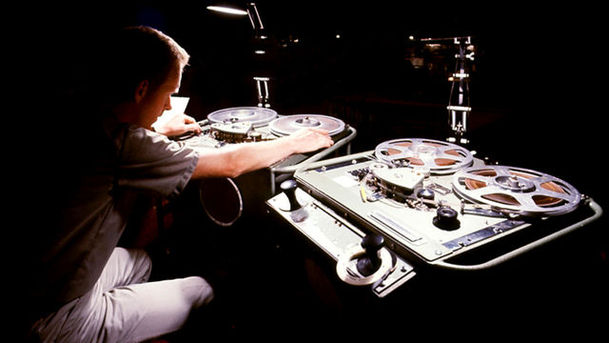
The Archive Hour - Adventures in the BBC Archives
Adventures in the BBC Archives: Former head of MI5 Dame Stella Rimington uses the BBC archives to examine the impact of the 'Cambridge spies' on the British establishment.
Details
The Archive Hour - Alan Parker on David Lean
Alan Parker on David Lean: Alan Parker offers a personal impression of David Lean on the centenary of the director's birth. He is joined by directors Hugh Hudson and Mike Figgis.
Details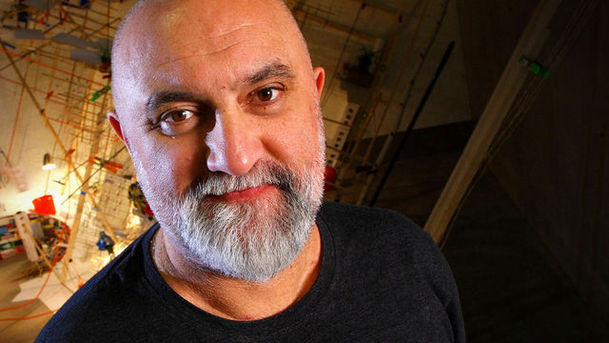
The Archive Hour - Alexei at the Seaside with the Unions
Alexei Sayle's parents were communists, his father an NUR official. His holidays in the 1960s were spent at union conferences. Using the archive he conjures those days and people.
Details
The Archive Hour - All the People I Hoped Were Dead: Cannes at 60
All the People I Hoped Were Dead: Cannes at 60. Barry Norman celebrates the 60th anniversary of the famous film festival, featuring archive interviews and anecdotes.
Details
The Archive Hour - Auntie Beeb and Religion
Jean Seaton explores how the BBC has faced the task of trying to accommodate, explain and negotiate religious beliefs.
Details
The Archive Hour - Back to the Future
Back to the Future: Adam Hart Davies looks at how scientists, programme-makers and politicians have predicted the ways we would lead our lives in the future.
Details
The Archive Hour - Basil Spence
Basil Spence: One hundred years after the architect's birth, Sarah Gaventa examines the legacy of his major buildings and his huge collection of drawings, models and photos.
Details
The Archive Hour - Britain's Business Problem
Britain's Business Problem: Twenty-five years on from the rise of popular capitalism, do we understand the profit motive any better than we ever did? Robert Peston reports.
Details
The Archive Hour - Britain's Space Race
Britain's Space Race: Heather Couper meets some of Britain's rocket pioneers from the 1950s and recalls their triumphs and disasters.
Details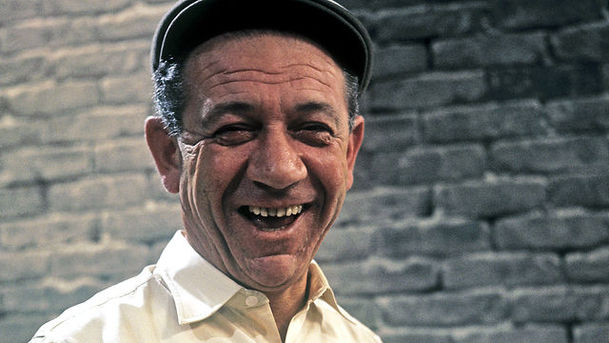
The Archive Hour - Carry On Britain
The first Carry On film was made 50 years ago. Carolyn Quinn asks what the series tells us about British society over three decades.
Details
The Archive Hour - Close to Home: The Story of Local Radio
Close to Home: The Story of Local Radio. Libby Purves looks back at 40 years of BBC local radio stations. The initial days were chaotic, but the ideals continue to flourish.
Details
The Archive Hour - Denis Healey at 90
Denis Healey at 90: Elinor Goodman looks back on the career of Denis Healey, whose life mirrors the vicissitudes of the Labour party since 1945.
Details
The Archive Hour - Eyes in the Sky
Eyes in the Sky: Now that the space age has reached middle age, Leo Enright reflects on satellites that have changed history since Sputnik 1 first beeped at us from 1,000km.
Details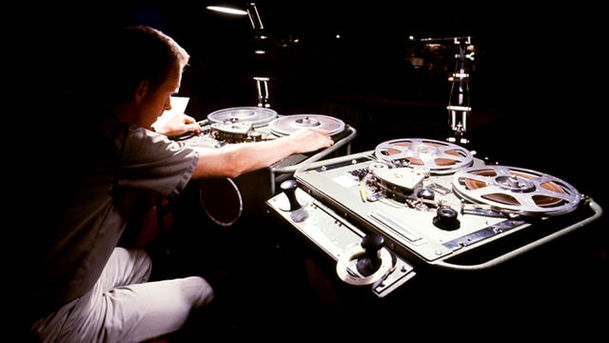
The Archive Hour - Fair Play Chaps
The writer DJ Taylor uses archive sports coverage to assess whether or not modern sport has lost its way, and if the era of sporting fair play has gone for ever.
Details
The Archive Hour - Flanders on Flanders
Flanders on Flanders: Stephanie Flanders, Economics Editor of Newsnight, tells the story of her father Michael Flanders, who formed one of the great comic duos with Donald Swann.
Details
The Archive Hour - Footlights and Fancy Free
Footlights and Fancy Free: This programme uses extensive archives of the Cambridge University Footlights Club to tell its story, from its cricket match inspired inception in 1883.
Details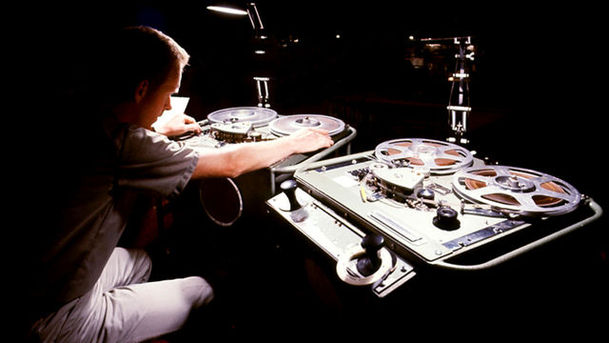
The Archive Hour - Fortress Totobag: The Story of the Notting Hill Riots
Henry Bonsu recalls the Notting Hill riots of 1958. At 9 Blenheim Crescent, known as Fortress Totobag, fighting between West Indians and teddy boys reached a peak on September 1.
Details
The Archive Hour - Giving Way to a New Era
Giving Way to a New Era: John Sergeant and Tony Benn look back at the effects of regular broadcasting in the House of Commons, which began on 3 April 1978.
Details
The Archive Hour - God, Pirates and Ovaltineys
God, Pirates and Ovaltineys: Sean Street investigates the history of the cultural battle between the BBC and commercial radio, which goes back to the 1920s.
Details
The Archive Hour - Gould's Mind
Gould's Mind: Piers Plowright looks back at the career of the brilliant Canadian pianist Glenn Gould, who turned his mind to radio and TV after abandoning the concert platform.
Details
The Archive Hour - Harry Belafonte at 80
Harry Belafonte at 80: Stephen Evans talks to the singer about his life in music and on the political battlefront.
Details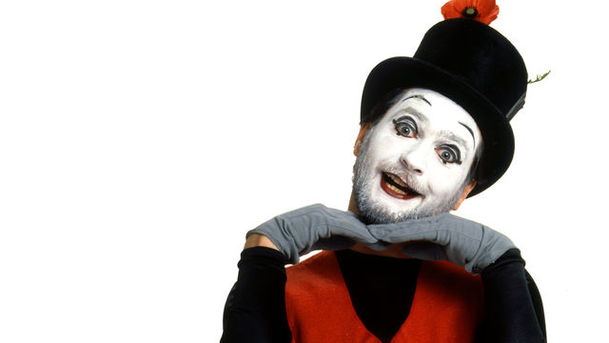
The Archive Hour - Here's Kenny
Music journalist Mark Paytress reassesses the pioneering disc jockey and comedian Kenny Everett and his place in broadcasting history.
Details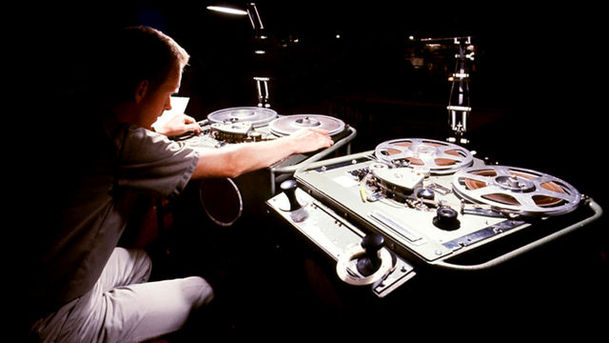
The Archive Hour - Home Recorded Voices
Sean Street goes in search of the domestic audio archives to be found in the attics, cellars and understairs cupboards across the country.
Details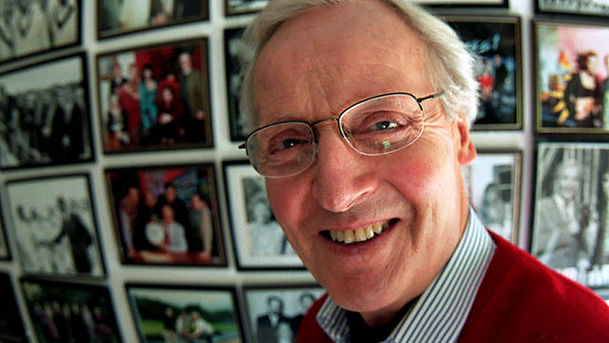
The Archive Hour - How Radio Comedy Changed a Nation
Featuring rarely-heard archive material, Nicholas Parsons explores how radio comedy has developed and how it reveals much about the way the British live.
Details
The Archive Hour - I'd Like to Teach the World
I'd Like to Teach the World: Nigel Warburton, whose grandfather Reg devised a distance learning guide to modern popular singing, looks back on the rich history of the autodidact.
Details
The Archive Hour - India and Pakistan '07: Debating the Divide
India and Pakistan '07: Debating the Divide. Sarfraz Manzoor chairs a debate at Southampton University on new ways of understanding the legacy of Partition 60 years on.
Details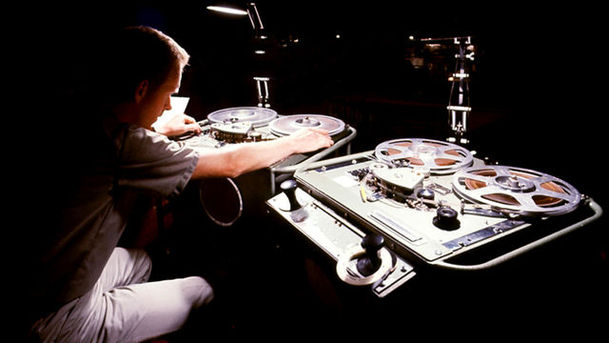
The Archive Hour - Julian Baggini's Sound Philosophy
Philosopher Julian Baggini explores the recordings of the sound archives to illustrate how our relationship to the past and present is changing.
Details
The Archive Hour - Ken Dodd: How Tickled I've Been
Ken Dodd: How Tickled I've Been: Veteran comedian Ken Dodd discusses his eventful career with actor Ricky Tomlinson, in front of an audience at Liverpool's Royal Academy of Arts.
Details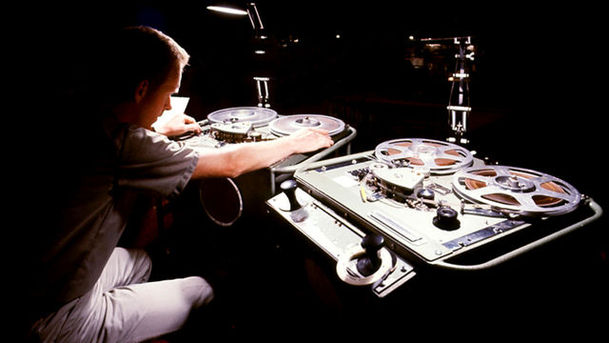
The Archive Hour - King of Comedy
Angus Deayton presents a tribute to the influential comedy producer, writer and performer Geoffrey Perkins.
Details
The Archive Hour - Kington's Last Tapes
Kington's Last Tapes: Tony Staveacre presents highlights from conversations with his friend Miles Kington, recorded shortly before the latter's death.
Details
The Archive Hour - Light at the End of the Chunnel
Light at the End of the Chunnel: In 1990 the Channel Tunnel was completed and a project first contemplated in Napoleon's time was realised. Sean Street explores the history.
Details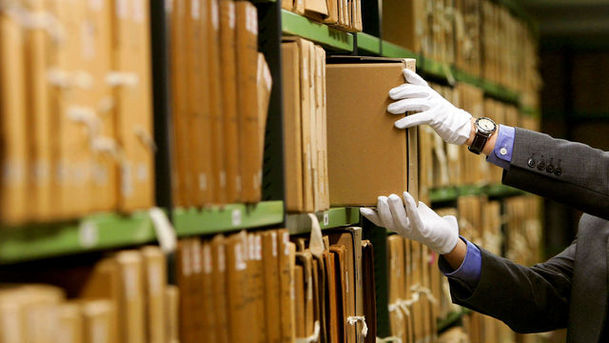
The Archive Hour - Like Blackpool Went Through Rock
Sean Street recalls the Radio Ballads, a series which began in 1958, mixing original voices and sounds with specially composed music to document ordinary people's lives.
Details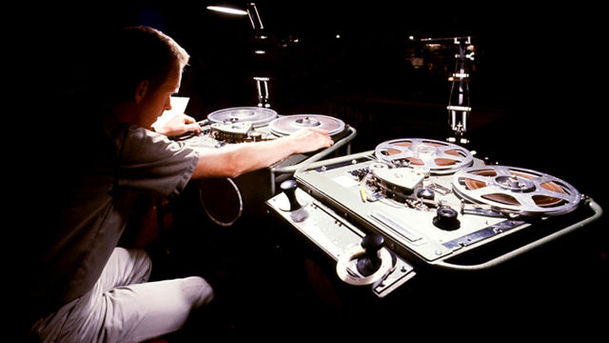
The Archive Hour - Liverpool: Sinner and Saint
Stewart Henderson looks at the changing face of Liverpool through the years. He finds a city of highs and lows, but the current mood is one of regeneration.
Details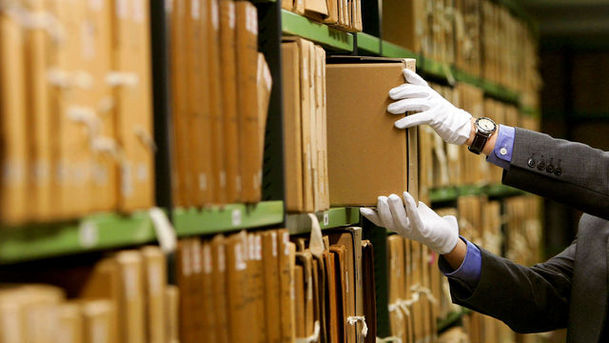
The Archive Hour - Love at the Lighthouse
Sue MacGregor explores the controversial life of Marie Stopes, remembered not only as the founder of modern birth control but also of the Portland Museum in Dorset.
Details
The Archive Hour - Mad about the Boy
Mad about the Boy: Kit Hesketh Harvey traces the story of the intertwined careers of Noel Coward and Ivor Novello.
Details
The Archive Hour - Maids and Mistresses
Maids and Mistresses: Christina Hardyment looks at life below stairs in Britain between the wars, focusing on the particular relationship between female employers and servants.
Details
The Archive Hour - Make Yourself at Home
Make Yourself at Home: In 1965, the BBC Immigration Programme Unit began its series Make Yourself at Home. Sarfraz Mansoor looks at how Asians were introduced to their new lives.
Details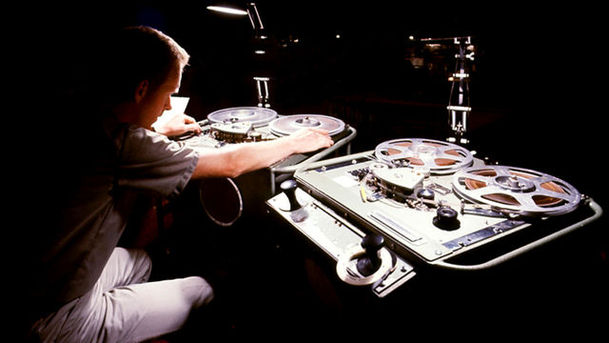
The Archive Hour - Men in Bow Ties
Lars Tharp explores the changing relationship between the antiques trade and the British public with their insatiable appetite for old things.
Details
The Archive Hour - Mods!
Phil Daniels presents a look back at the Mod movement, exploring its beginnings in the Soho underground of the late 50s through to the seafront clashes with the Rockers in the 60s.
Details
The Archive Hour - Mr Munrow, his Study
Mr Munrow, His Study: The Royal Academy of Music now owns the ancient music, books and papers from the study of the late David Munrow. Jeremy Summerly explores this unique archive.
Details
The Archive Hour - Munich and the Making of Manchester United
Munich and the Making of Manchester United: Michael Crick recalls the Munich air disaster of 6 February 1958. 23 people, including 8 Manchester United players, lost their lives.
Details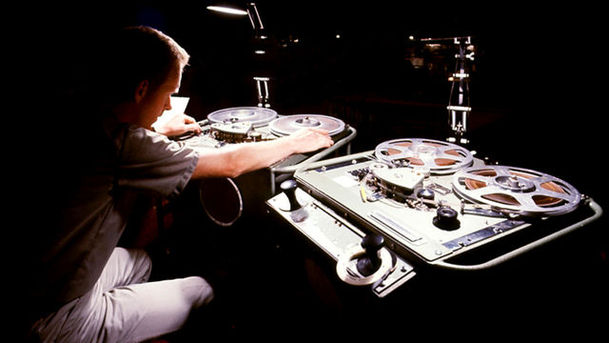
The Archive Hour - Not Like That, Like This
Julian Worricker looks back at 60 years of BBC masterclasses revealing how great musicians approach their craft.
Details
The Archive Hour - Olivier
Olivier: Mark Lawson reassesses Laurence Olivier's reputation, 100 years after his birth. Contributors include Peter Hall, Jonathan Miller and Jeremy Isaacs.
Details
The Archive Hour - On the Grapevine: Oral History of the Wine Trade
On the Grapevine: Oral History of the Wine Trade. Jancis Robinson tells the story of how the British wine trade has changed within the last half century.
Details
The Archive Hour - Out on Air
The rise and fall of gay radio; how homosexuality went from taboo to mainstream in the space of a decade. The gay community was the last to find a voice on British radio.
Details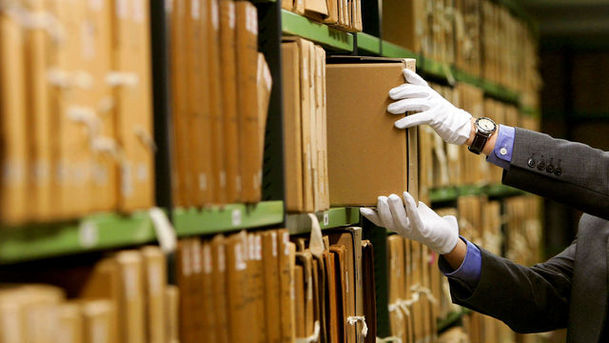
The Archive Hour - Piper Alpha's Legacy
Two decades on from the world's worst offshore oil disaster, Mark Stephen explores Piper Alpha's legacy, for individuals and for the oil industry as a whole.
Details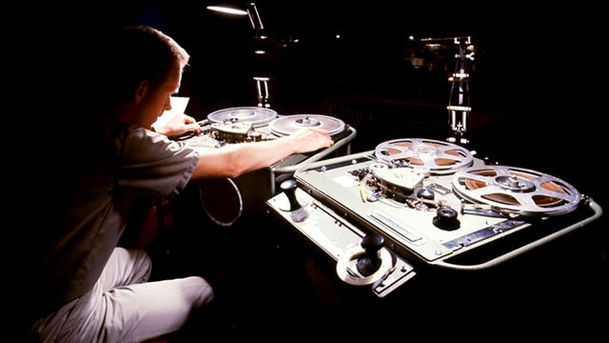
The Archive Hour - Potteries Fascists
Gerry Northam charts the rise and fall of Oswald Mosley and explores how and why the British Union of Fascists flourished on Mosley's homeground in the Potteries.
Details
The Archive Hour - Putting It Simply
Putting It Simply: Kathy Sykes charts the way that science has been seen and heard on radio and television, from postwar lectures to modern animations.
Details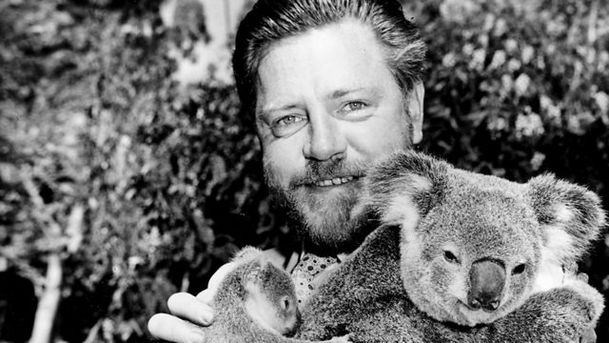
The Archive Hour - Rediscovering Your Inner Durrell
Gerald Durrell's best-seller My Family and Other Animals was published 50 years ago. Naturalist Bridget Nicholls reflects on the life of this pioneering conservationist.
Details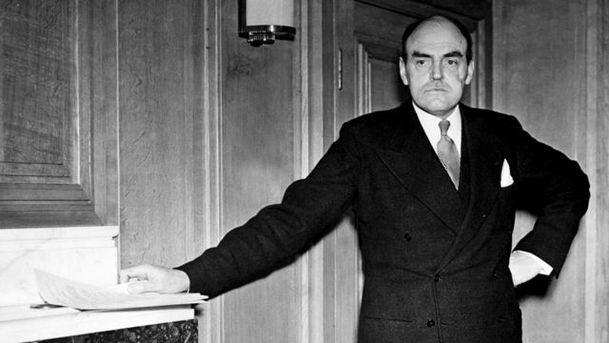
The Archive Hour - Reith at 60
Professor Laurie Taylor marks the 60th anniversary of the Reith Lectures, charting their evolution, controversies and influence
Details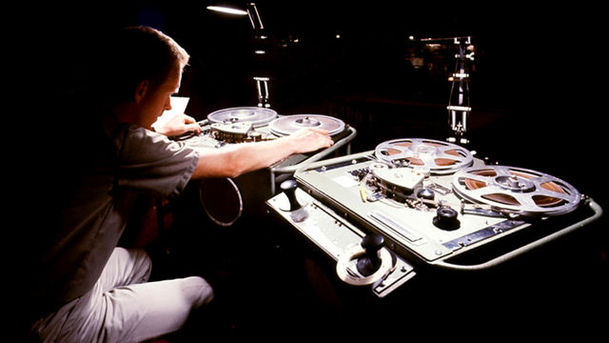
The Archive Hour - Saigon Songs - The Lansdale Tapes
Martin Bell tells the story of American general Ed Lansdale's musical plan to win 'hearts and minds' in pre-Tet Offensive Vietnam.
Details
The Archive Hour - Same Time, Same Place, Next Year
Malcolm Taylor, the English Folk Dance and Song Society's librarian, follows archivist Doc Rowe as he records and films annual events in the calendar of British folk culture.
Details
The Archive Hour - SAS - The Originals
SAS - The Originals: The remarkable story of the birth of the SAS, told by the men who were there and who were The Originals. Presented by Gordon Stevens.
Details
The Archive Hour - Saving the Sounds of History: Marie Slocombe and the BBC Sound Archive
Saving the Sounds of History: Sean Street tells the story of Marie Slocombe and the BBC Sound Archive, which began almost by accident in the 1930s.
Details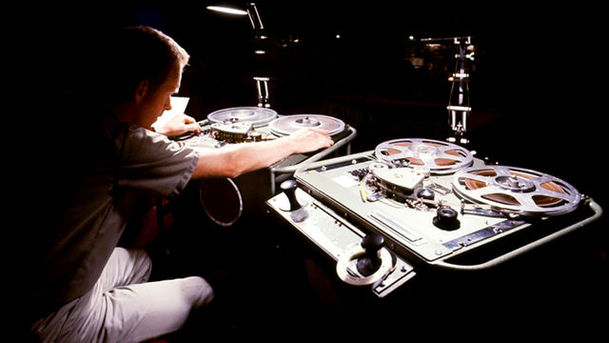
The Archive Hour - Snowy Streets of St Petersburg
Martin Sixsmith explores the lives and works of artists and writers who fled the former Eastern Bloc.
Details
The Archive Hour - Stalin's Silent People
Historian Orlando Figes reveals the secret histories of family life during Stalin's reign of terror, drawing on archives and interviews he gathered for his book The Whisperers
Details
The Archive Hour - Strangers in the Night
Michael Nicholson recalls the night of the Argentinian invasion of the Falkland Islands in 1982 with the help of some astonishing local radio archive.
Details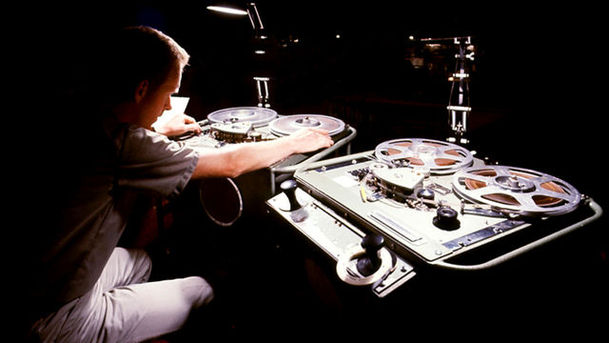
The Archive Hour - Studs Terkel - Back in the Wax Museum
Alan Dein looks back at the life of the late American oral historian Studs Terkel. Includes archive material from Terkel's own collection covering almost 50 years of interviews.
Details
The Archive Hour - Test Match Special: Ball by Ball
Test Match Special: Ball by Ball. Rory Bremner looks back at fifty years of BBC Radio cricket coverage, from the poetic elegance of John Arlott to the exuberance of Jonathan Agnew.
Details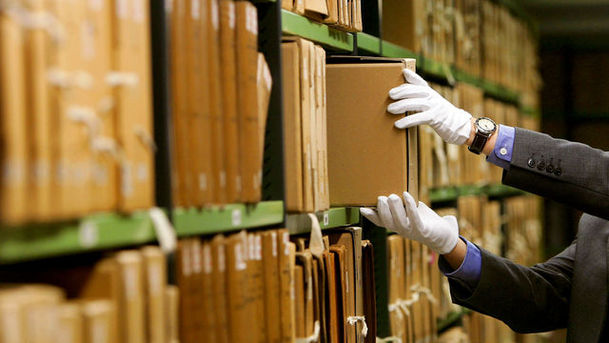
The Archive Hour - The Ballad of the Radio Feature
A look at the history and evolution of the radio documentary feature, a hybrid form which can sometimes appear closer to music or poetry than to news reporting.
Details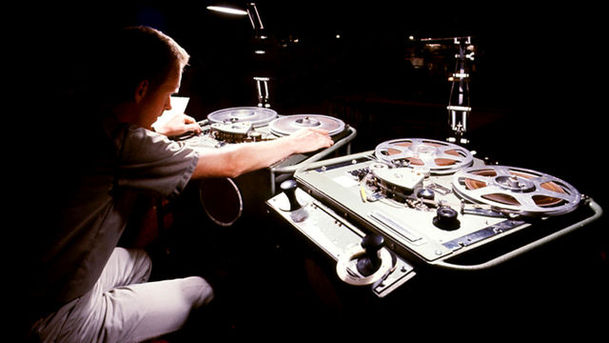
The Archive Hour - The Bow Dialogues
Joan Bakewell revisits the debates that took place in a London church in the 1960s and 70s between churchman Joseph McCulloch and the writers, politicians and actors of the day.
Details
The Archive Hour - The Cancer of Betrayal
The Cancer of Betrayal: As Ghana celebrates 50 years of independence, we ask what were the real reasons behind the 1966 coup against Kwame Nkrumah and his untimely death?
Details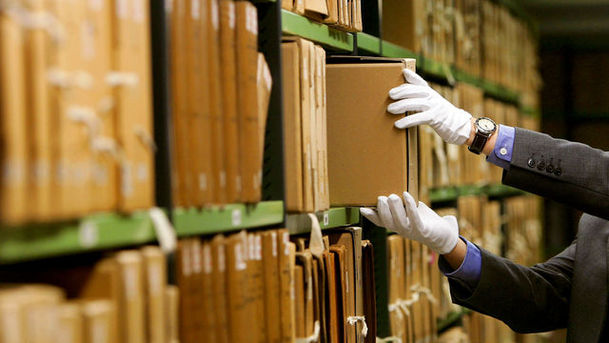
The Archive Hour - The Dirtiest Race in History
Steve Cram talks to Ben Johnson about the infamous men's 100 metres race at the 1988 Seoul Olympics. Johnson won, only to be stripped of his gold medal after failing a drugs test.
Details
The Archive Hour - The Documentary Pioneers
The Documentary Pioneers: Francine Stock tells the story of five film makers, all born in 1907, who exposed the lives of the working class to cinema audiences for the first time.
Details
The Archive Hour - The Dream Time of Jazz
Marybeth Hamilton recalls an extraordinary ten-hour interview conducted in 1938 by the 23-year-old folklorist Alan Lomax with the pioneering jazz composer Jelly Roll Morton.
Details
The Archive Hour - The Editors
The Editors: Andrew Neil celebrates the big characters of Fleet Street, from CP Scott to Kelvin McKenzie. Who has been the most influential newspaper editor of recent history?
Details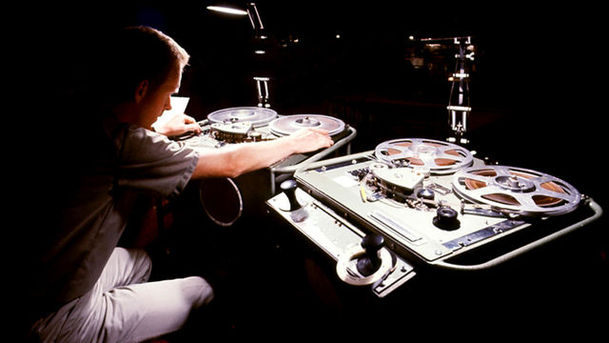
The Archive Hour - The King and Dr Cannon
Sean Stowell tells the strange story of a yogic doctor from Yorkshire and his role in the Edward VIII abdication crisis.
Details
The Archive Hour - The Larkin Tapes
The Larkin Tapes: Paul Farley tells the extraordinary story of two tapes by poet Philip Larkin which remained hidden on a cluttered shelf in a garage for 25 years.
Details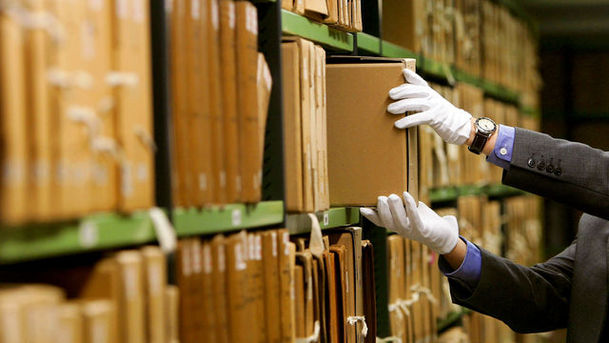
The Archive Hour - The Man who Invented Stereo
Martin Shankleman profiles Alan Blumlein, an unsung but remarkable pioneer in the fields of stereo recording, television and radar systems that played a major role in World War Two.
Details
The Archive Hour - The Mantovani Sound
The Mantovani Sound: Catherine Bott recalls the music of Annunzio Mantovani, whose string orchestra provided the soundtrack to postwar suburban life before falling out of fashion.
Details
The Archive Hour - The My Lai Tapes
Robert Hodierne reveals the truth about the infamous My Lai massacre of 16 March 1968, based on the transcript of a Pentagon enquiry that was suppressed.
Details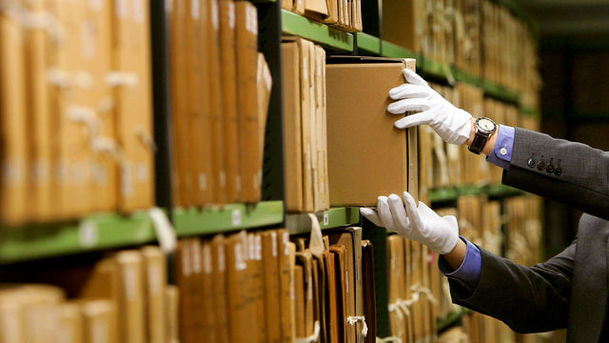
The Archive Hour - The New York '77 Blackout
An exploration of the blackout on 13 July 1977 that plunged a sweltering New York City into chaos as the lights went out at 9.27pm.
Details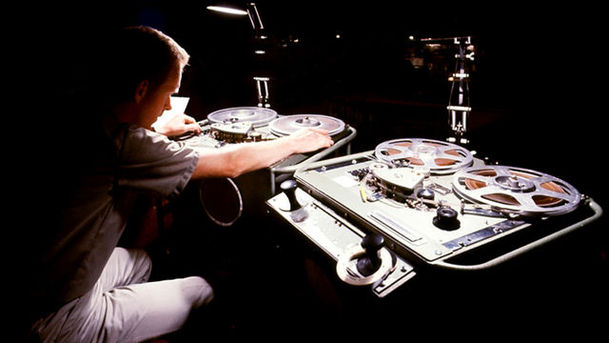
The Archive Hour - The Palace and the Beeb
David Cannadine traces 75 years of the BBC's relationship with the Royal Family, from the Richard Dimbleby broadcasts to royal marriages, divorces, deaths and It's a Royal Knockout.
Details
The Archive Hour - The People's Place
The People's Place: In June 2007, the Royal Festival Hall reopens after a major refurbishment. Harry Enfield explores its history through music and anecdotes from the archives.
Details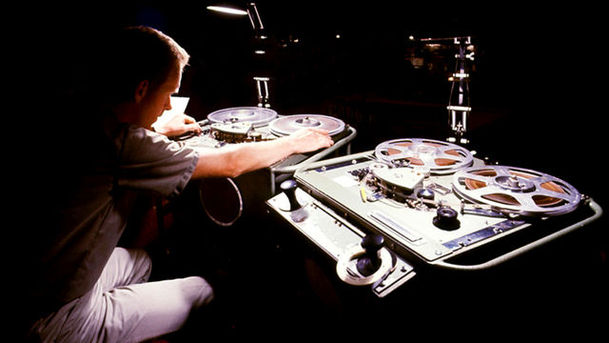
The Archive Hour - The People's Republic of Hulme
The story of how a Manchester slum became a creative hub, using archive material and interviews with former residents of Hulme's infamous deck-access flats.
Details
The Archive Hour - The Ration Book Olympics
As debate continues over the funding of the 2012 Olympics, Clare Balding recalls the last time the Games came to London in 1948.
Details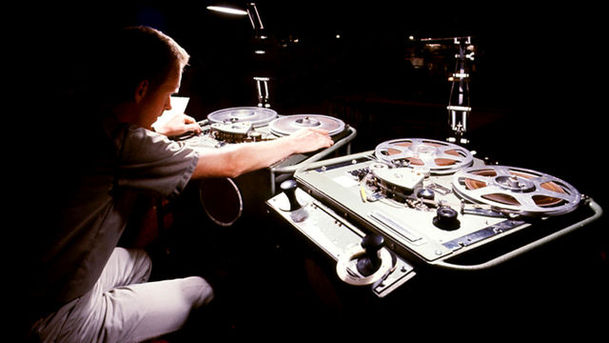
The Archive Hour - The Shanghai Sailors
Many Chinese served in the merchant navy during WW2, but later their presence was not welcomed and hundreds were repatriated. Ivan Howlett tells their story.
Details
The Archive Hour - The Shoemakers
The Shoemakers: Ray Gosling revisits his home town of Northampton, once the centre of the British shoemaking industry. Since the 1960s, most of the footwear factories have closed.
Details
The Archive Hour - The Sound and the Fury
The Sound and the Fury: Tom Robinson examines the seemingly inevitable anger that has greeted musical innovation in the last 100 years, from early jazz to rap and rave music.
Details
The Archive Hour - The Sound of America: The Story of NPR
The Sound of America: The Story of NPR. Joe Queenan looks at the past 35 years of American history through the news reports and documentaries produced by National Public Radio.
Details
The Archive Hour - The Sounds of Flanders
The Sounds of Flanders: Frank Gardner discovers a collection of First World War propaganda recordings and considers their impact on the ordinary civilians and soldiers.
Details
The Archive Hour - The Stone of Destiny
The Stone of Destiny: James Naughtie tells the story of a raid carried out in 1950, when the Stone of Destiny, a symbol of the pride of Scotland, was removed from Westminster Abbey.
Details
The Archive Hour - The Terrible Truth
The Terrible Truth: Tom Robinson takes a nostalgic look back at the public service educational publications of the 1950s, 60s and 70s.
Details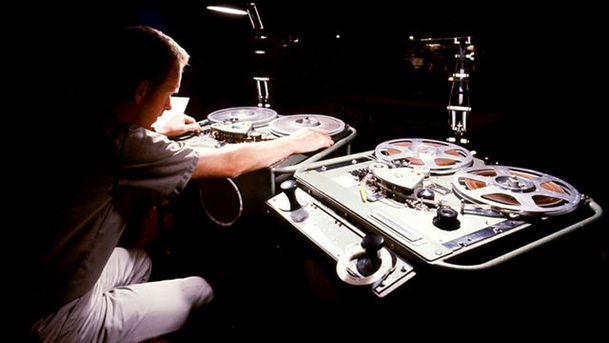
The Archive Hour - The Voices In My head
Julian Rhind-Tutt explores how actors archive the sounds of their own voices. How does an actor live with the voice in his head and the voice he knows he sounds like?
Details
The Archive Hour - The Women Left on the Shore
The Women Left on the Shore: Local historian Dr Sam Riches introduces recordings reflecting the role of women in the fishing communities around Morecambe Bay over the last century.
Details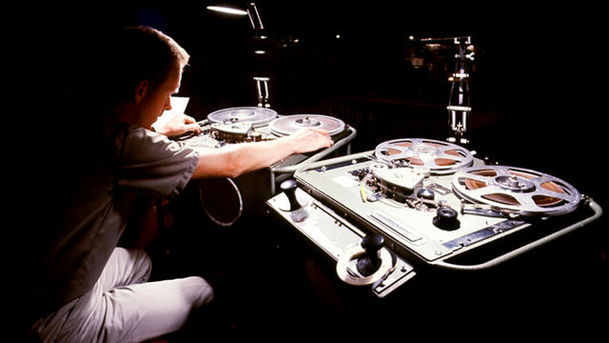
The Archive Hour - Then Was the Winter of our Discontent
Anne Perkins recalls the causes, impact and significance of the wave of strikes which swept across Britain during the winter of 1978/9.
Details
The Archive Hour - To Win the Peace
To Win the Peace: John Cole relives the 1945 General Election. Winston Churchill confidently expected to capitalise on his postwar popularity, yet Labour gained a landslide win.
Details
The Archive Hour - Virtuoso
Virtuoso: Peggy Reynolds takes a wry, informative and highly entertaining look at the history of the virtuoso performer, from Paganini to Eric Clapton.
Details
The Archive Hour - When Seagulls Follow the Trawler
Former Daily Mail head of sport Bryan Cooney chronicles the souring of the love affair between sports stars and the media. When and why did it all go wrong?
Details
The Archive Hour - Wriggling with Eels
Wriggling with Eels: Lee Hurst looks back at a century of cockney comics from Albert Chevalier and Max Miller to Alf Garnett and Ricky Grover.
Details
The Archive Hour - Wunderkind!
Wunderkind! Mark Lawson celebrates the centenary of the great conductor Herbert von Karajan.
Details